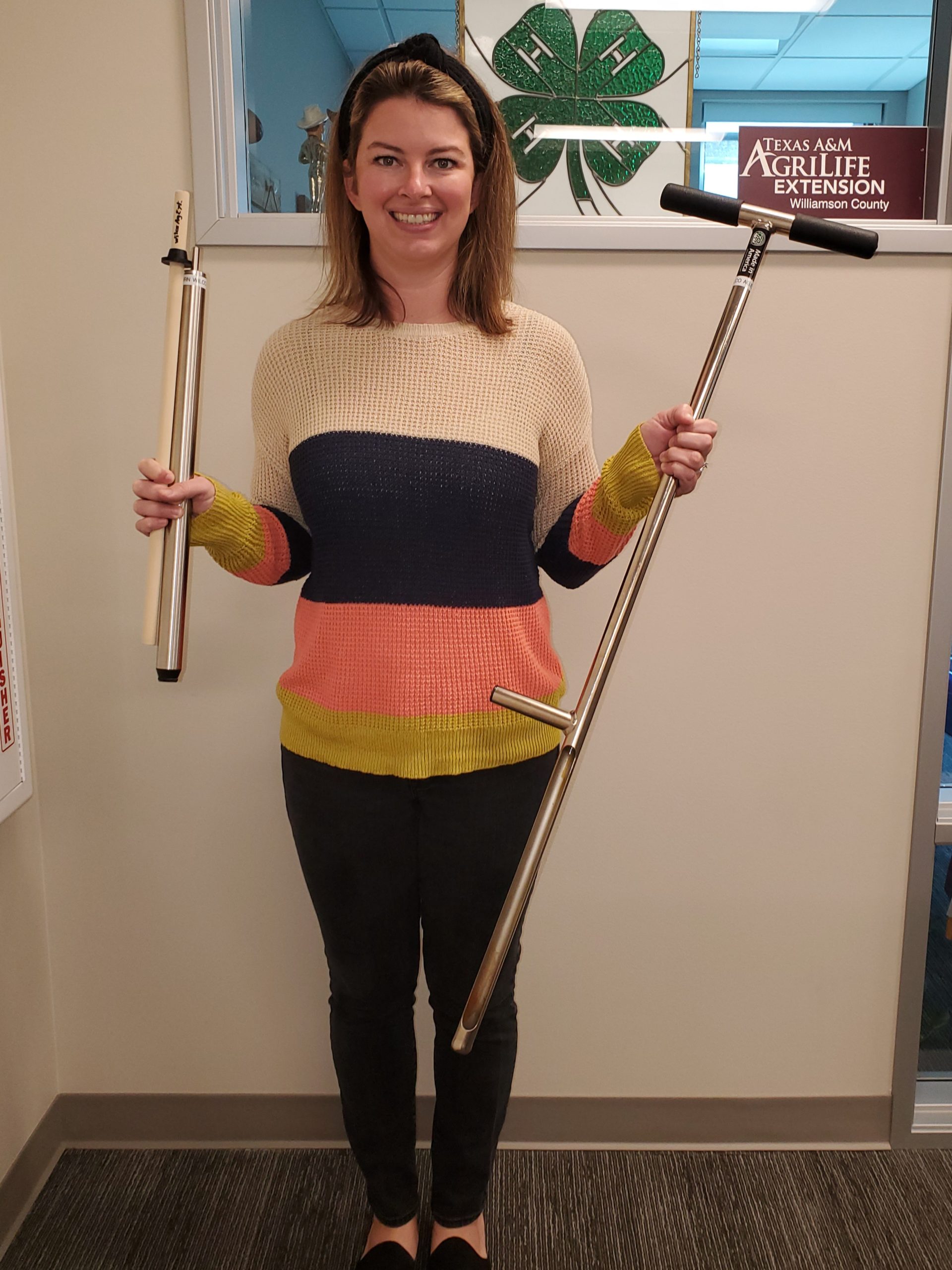We have enjoyed a nice summer so far with cooler temperatures (for Texas) and good rains in June. This is great news for our lawns and plants, and especially for our water bills. Over the last few weeks, we’ve had hotter temperatures and less rain, so you need to start thinking about supplying extra water to your lawn.
If you plan to water your lawn, be sure to follow these tips to conserve water. Turfgrass in our area needs about one inch of water per week, and you can split that into two different watering periods of ½ inch each. Be sure to check your city’s watering guidelines and water on the appropriate days.
- Water deeply and infrequently. Try to water to a depth of approximately six inches each time you water. This means the water should penetrate six inches in the soil. Watering deeply encourages deeper, denser root growth.
- Wait to water until visual wilt occurs, and water late at night or early in the morning. Watering during the cool hours of early morning or late evening will reduce losses from evaporation and improve water-use efficiency.
- Monitor your irrigation equipment. Broken heads or pipes can waste water and create dry spots in your lawn. Replace broken heads and consider an irrigation audit by a licensed irrigator.
- Take advantage of rain. Remember that a lawn irrigation system is put in place to supplement water during dry times, so save water by turning off your irrigation system when it rains and wait until the lawn needs to be watered again.
- Mow at the upper end of the appropriate mowing height for your grass species. Taller grass means your grass will develop a deeper root system that allows the grass to access water deeper in the soil. You can find the mowing height for your grass species at http://aggieturf.tamu.edu/.
- Follow the 1/3 rule. Mow frequently enough that you never remove more than 1/3 of the total grass. Cutting off too much of the grass will stress your grass. Stressed grass is less tolerant to heat and drought and more vulnerable to pests and diseases.
For more information about lawncare or water use, contact Kate Whitney, Williamson County Extension Agent for Horticulture, at 512-943-3300.

